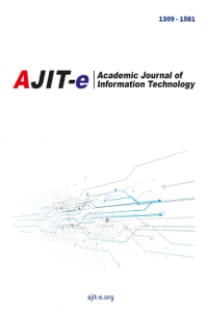Enformasyon toplumu ve bilginin toplumdaki rolü özet
The information society and the role of knowledge in society
___
- Bell, Daniel (1 976) The Coming of Post-Industrial Society: A Venture in Social Forecasting. Harmondsworth Penguin.
- Castells, M. (1990). The Infomational City: A Framework for Social Change . Canada: University of Toronto.
- Castells, M. (2000a). Materials for an exploratory theory of the network society. British Journal of Sociology Vol. No. 51 Issue No. 1 (January/March 2000) pp. 5-24.
- Castells, M. (2000b). The Rise of the Network Society, Second Edition . U.S.: Blackwell Publishing.
- Castells, M. (2001). The Internet Galaxy. U.K.: Oxford University Press.
- Castells, Manuel (2004a), Universities and Cities in a World of Global Networks, Eighteenth Sir Robert Birley Lecture, City University London.
- Fuller, Steve (2002) Knowledge management foundations ButterworthHeinemann Boston Giddens, Antony (1987) Social Theory and Modern Sociology Polity Press: Cambridge
- Lush, Scott (2002) Critique of Information SAGE Publications London
- Lundvall, B.A. (1996) The social dimension of the learning economy
- Lundvall, B. A. (1998) The le arning economy: challenges to economic theory and policy, in Nielsen, K. and Johnson, B. (eds.), Institutions and economic change: new perspectives on markets, firms and technology, Cheltenham: Edward Elgar.
- Lundvall, B.A. (2002) The University in the Le arning Economy, Danish Research Unit for Industrial Dynamics (DRUID)Working Paper N. 02-06.
- Muldur Ugur et all (2006) A New Deal For An Effective European Research Policy The Design And Impacts Of The 7th Framework Programme
- Webster, Frank (2006) Theories of the Information Society Routledge London and New York.
- Yayın Aralığı: 4
- Yayıncı: AKADEMİK BİLİŞİM ARAŞTIRMALARI DERNEĞİ
Bir Dijital Aktivizm Örneği: Akıllı Ağ Çeteleri Smart Mobs
Ali Murat KIRIK, Arş. Gör. Ali ÖZCAN
Yapay Sinir Ağları ve Karar Ağaçları Teknikleri Kullanarak Migren Teşhisi
Ufuk CELIK, Nilufer YURTAY, Ziynet PAMUK
Enformasyon toplumu ve bilginin toplumdaki rolü özet
Cinsiyet Dergilerinin Sosyal Medya Kullanımlarında Hazcı İleti Arayışı
Mert GÜRER, Saadet Zeynep Varlı GÜRER, Nihan DÖNMEZ
